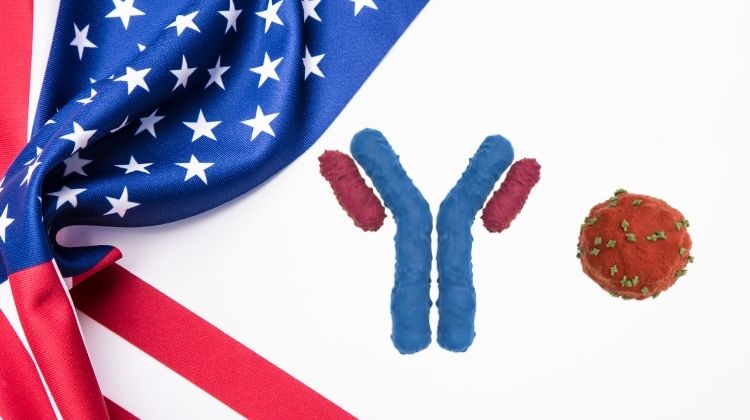Majority of US Population Boasts COVID Antibodies

Recent estimates, as reported by CNBC and other news sources, show that almost all U.S. citizens now have some level of COVID antibodies within their bodies.
As the news reports, “According to a Centers for Disease Control and Prevention survey of blood donor samples, conducted in December and updated last month, an estimated 95% of Americans ages 16 and older have developed identifiable COVID antibodies.”
What Are Antibodies, and What Do They Mean For You and COVID?
As The Centers for Diseases Control and Prevention (CDC) points out, “Antibodies to SARS-CoV-2, the virus that causes COVID, can be detected in the blood of people who have recovered from COVID or people who have been vaccinated against COVID. If someone has already had COVID, vaccination against COVID-19 increases their body’s antibody response, which improves their protection.”
“A positive antibody test result can help identify someone who has had COVID in the past or has been vaccinated against COVID. Antibody tests are not used if you have symptoms of COVID or for diagnosing a current case of COVID. This is because it takes most people with a healthy immune system one to three weeks after getting COVID to develop antibodies.”
While it is commonly known that antibodies are temporary, and some individuals lose antibodies quicker than others, antibodies, and this large percentage of them within the population, are still a good sign.
A Good Sign for All
With this latest news, especially in a time of a possible upcoming BA.2 variant surge, citizens can somewhat be hopeful with regard to their health and protection. As of June 2021, more than 87% of U.S. citizens had COVID antibodies. Now, 95% of U.S. citizens have them. Important to note here is that with antibodies, there are different types of immunity provided over varying amounts of time.
Whether antibodies exist due to COVID vaccinations or from prior infections it is an important factor. “Antibodies from vaccinated individuals tend to decline after about four to six months post-shot. So if you got a booster dose in December, your antibody boost will probably wear off between April and June,” the news reports.
Unvaccinated individuals with ‘natural immunity and antibodies could have protection against reinfection from three to 61 months after getting COVID. Other studies suggest that this natural immunity could last up to eight months. With the duration of protection differing among the population, booster shots are recommended.
Did You Know That Not All Antibodies Fight COVID?
News reports that “In the U.S. [individuals] have antibodies against COVID, either through past infection or vaccination. But not all of these are ‘COVID-fighting’ or neutralizing antibodies.”
In this case, non-neutralizing antibodies are produced when confronted with a pathogen and do not bind to the pathogen site to stop it from creating the infection. “In the case of SARS-CoV-2, this may have to do with mutations to the spike protein.”
Even with Antibodies, There’s No Guarantee
While antibodies are helpful to some level, having antibodies is no guarantee that your body will fight off the COVID infection and its variants. Neither does a high potential of antibodies in the country show that the pandemic is over.
With this, it’s still vital for U.S. citizens not to let their guard down and to continue to follow health and safety regulations as recommended by the CDC and The World Health Organization.
Antibodies or no antibodies, it is important for all to monitor their own perception of risk and make COVID-related health decisions based on their own personal lives and current circumstances. For those who have not received vaccinations or boosters, it is also recommended to do this.



